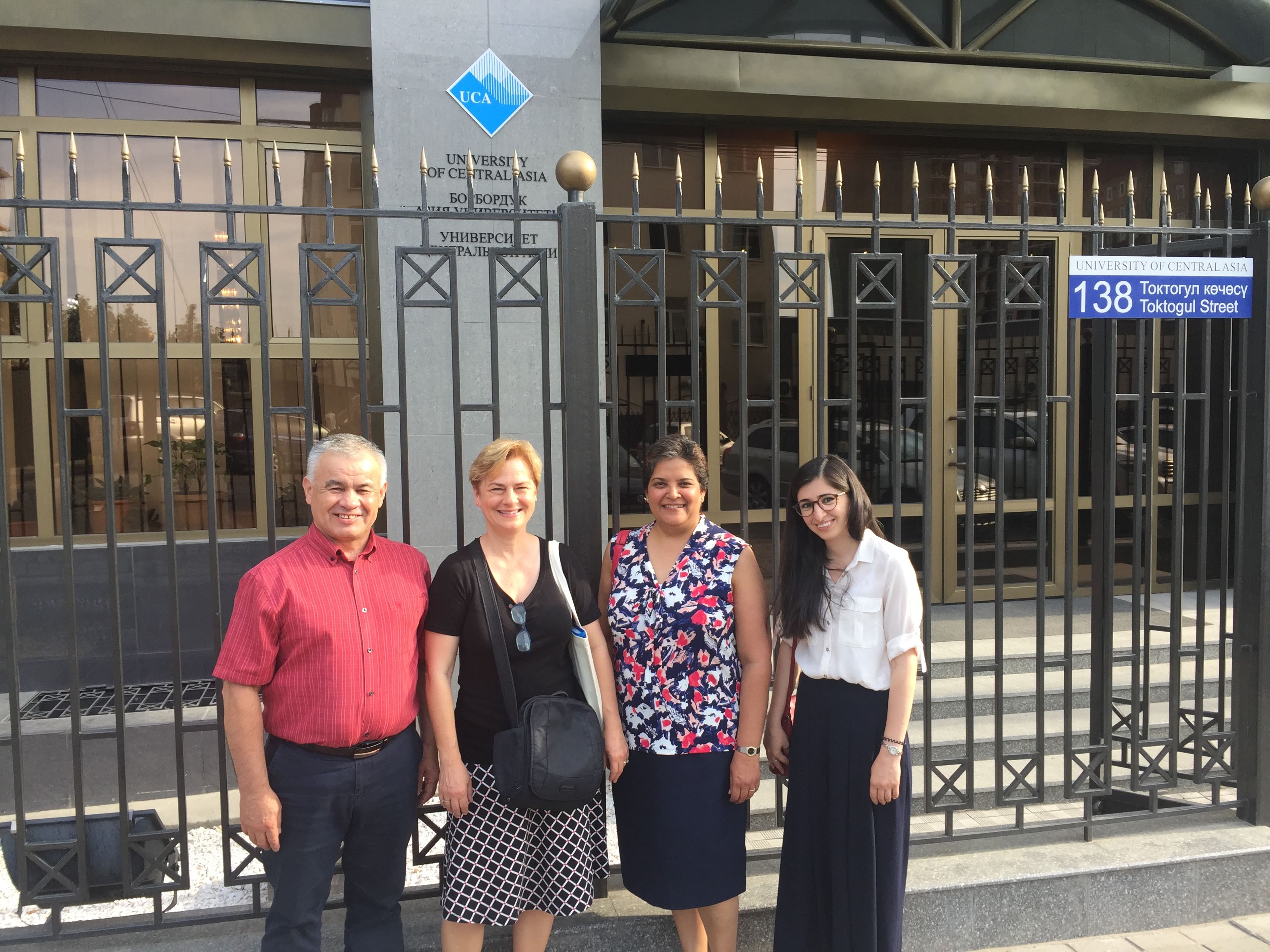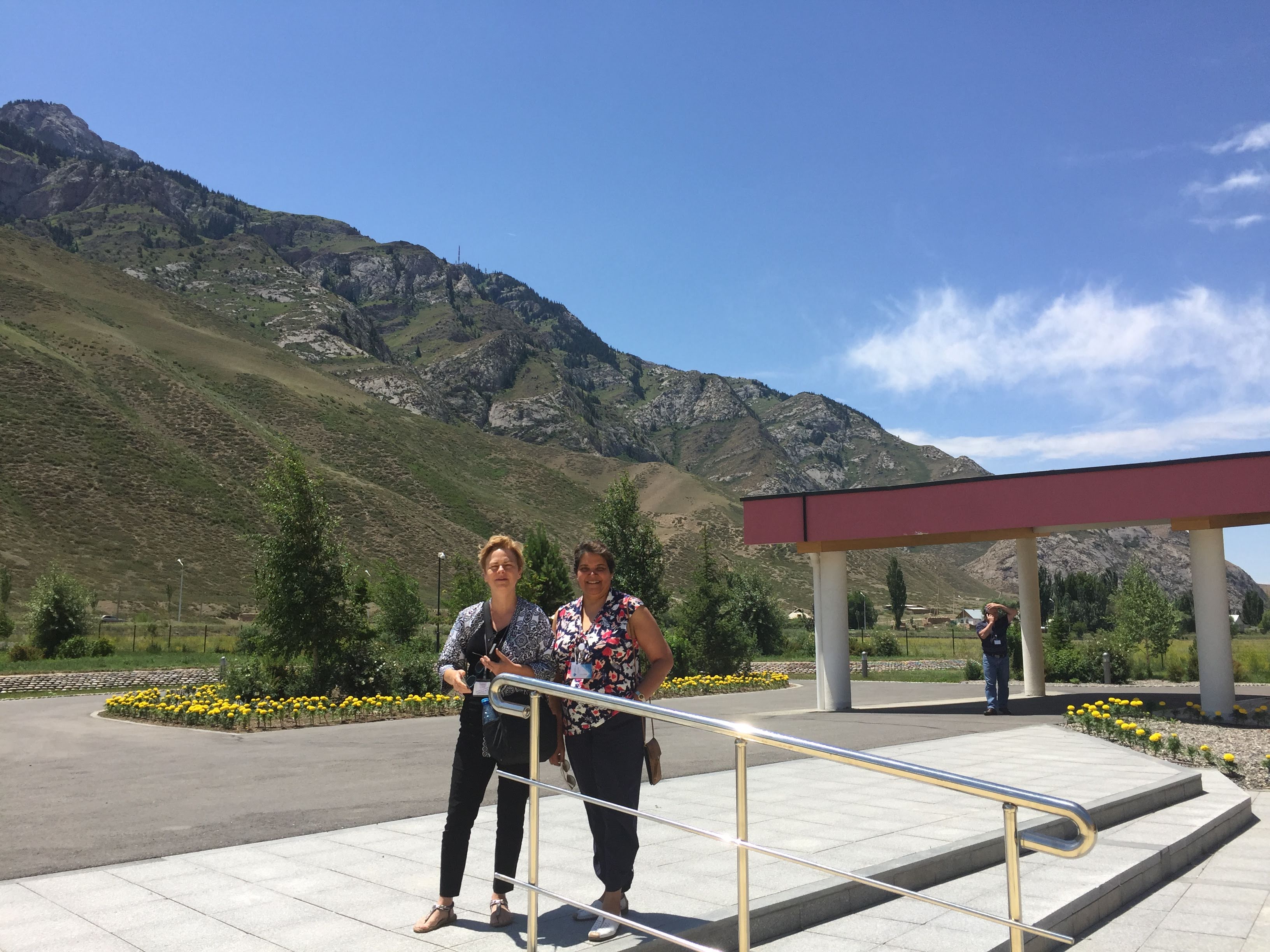International WIL
Submitted by: Karima Ramji
Associate Director, International, Indigenous and Strategic Initiatives
Co-operative Education Program and Career Services - UVIC


How did you become interested in pursuing an international opportunity?
Giving of my time, knowledge and resources to improve the quality of life of others is an important value to me. I have been an active volunteer for much of my life, supporting my community locally and globally. A global initiative that resonates with me is the Aga Khan Foundation Canada’s World Partnership Walk, which raises awareness and funds to fight global poverty. The most recent Aga Khan Development Network educational institution, the University of Central Asia (UCA), was founded with a mandate to improve the quality of life of people living in mountain societies. This institution is located in the midst of one of the world’s highest mountain ranges, the Pamir Mountains, where access to basic necessities of life can be hard to access. In 2015/16, I was humbled to be offered the opportunity to help UCA develop a co-operative education program that provides relevant educational programs for mountain societies.
Can you provide a brief overview of the international WIL work you were involved in?
My engagement began at the early stages of conceptualization of the UCA co-op program. I was asked to consider what the program might look like, how it would be structured, and how it would be integrated into students’ academic schedules, etc. While I was doing this in a volunteer capacity, it soon became clear that UCA would benefit from a partnership with the University of Victoria so that expertise and existing resources could be shared without the need to reinvent the wheel, while keeping in mind that adaptations would be required to fit the Central Asian context. The emerging WIL literature at the time informed many of these discussions (Khampirat & McRae,2015, Keating et al., 2016, McRae & Johnston, 2016). In 2018, our team at UVic entered into a Memorandum of Agreement with UCA to help develop their Co-operative Education Program.
What were the deliverables or outcomes of the experience?
As a first step, we developed a professional development opportunity for Myrza Karimov, Head of UCA’s Co-op Program, and Diana Tsoi, who was then UCA’s co-op coordinator, to visit the University of Victoria. They spent four weeks at UVic to learn the inner workings of our existing co-op program, which included participating in work site visits. They also attended the ACE/CACEE/then CAFCE 2017 Conference, Better Together, where they met WIL professionals from across Canada and developed meaningful networks and a better understanding of WIL in the Canadian context.
Following their visit, Myrza and Diana piloted a co-op program on a small scale at UCA, where learnings from their visit to Canada were adapted to their context. In 2018, Dr. Norah McRae (then Executive Director of Co-op & Career Services at UVic) and I visited UCA to provide a program review and recommendations on their pilot project. I then stayed on in a volunteer capacity to work with co-op staff at UCA’s Naryn and Khorog campuses to help further develop policies and procedures for the program based on learnings and recommendations from our program review.
The UVic-UCA partnership resulted in the successful development of a mandatory co-op program at UCA, the first of its kind in Central Asia. UCA graduated its first class of co-op graduates in 2021, many of whom I had the opportunity to meet during my 2018 visit.
What was the biggest take-away from your experience?
What started as a one-person volunteer opportunity turned into an institutional partnership. A project of this magnitude does not have to be a one-person job—it is possible to leverage your institutional connections and resources to develop long-term partnerships that benefit both institutions and their students. Another take away was highlighted by Anne Fannon in her article – context is important. The learnings gained from the Canadian context were adapted to the educational, political, business and cultural context of Central Asia.
What advice would you give to other WIL practitioners interested in international WIL?
Share your passion with your colleagues and find ways to bring your work and passion together. My work with UCA and the World Partnership Walk started out as my personal passion projects, yet both have led to institutional engagement that multiplies the benefits and outcomes of the projects for all stakeholders, while contributing to a larger goal of a better quality of life for all. To me, this is a perfect example of how the personal and the professional can come together in a beautiful manifestation of shared values.
International WIL is a fascinating field of endeavour. It is an opportunity to travel, enhance our networks and engage in cross border initiatives that benefit our students but also ourselves. Through our ongoing partnership with UCA and our engagement with our colleagues there, we have gained the invaluable benefit of developing our own cultural intelligence. I encourage interested colleagues to take this leap. Your CEWIL international committee can support you in your endeavours.